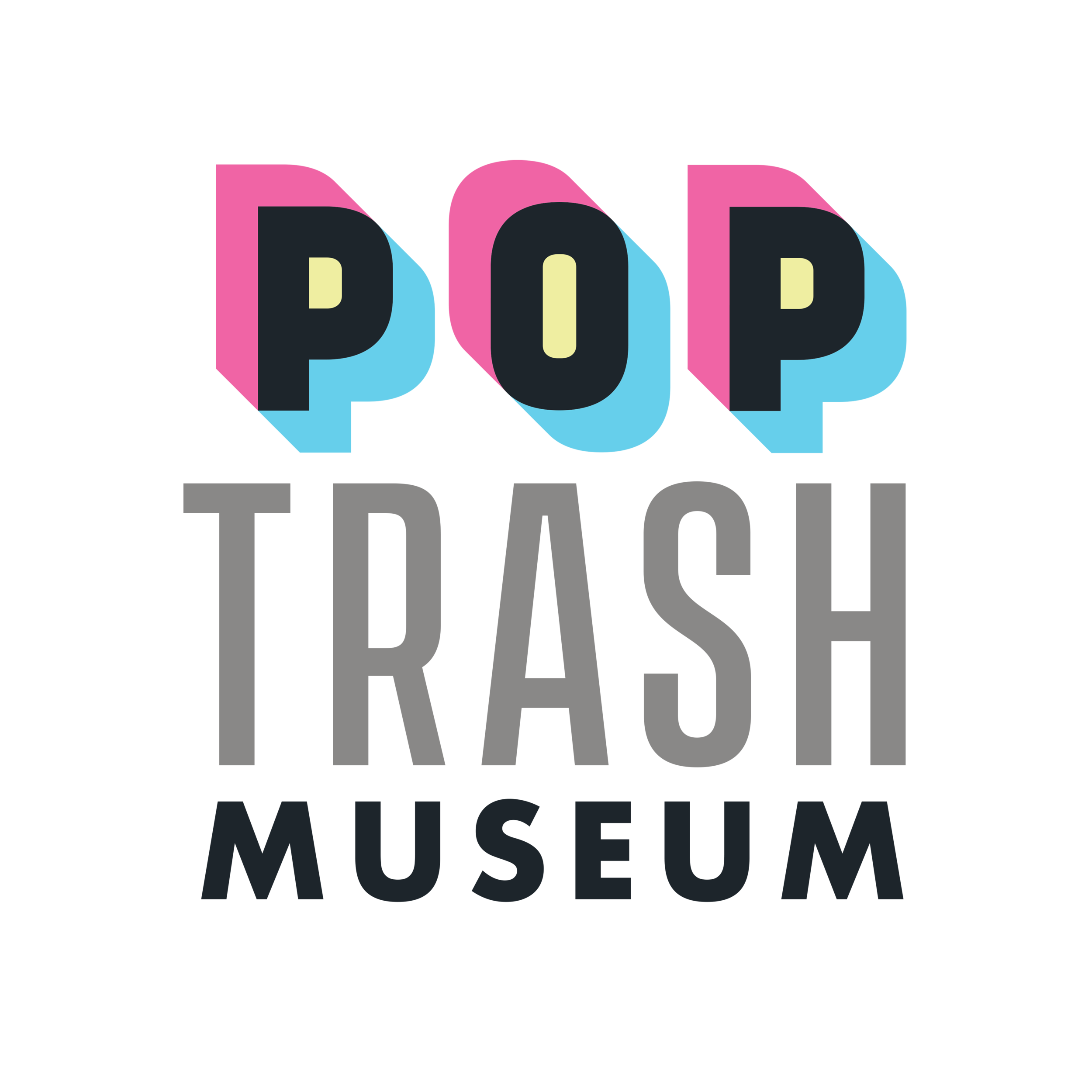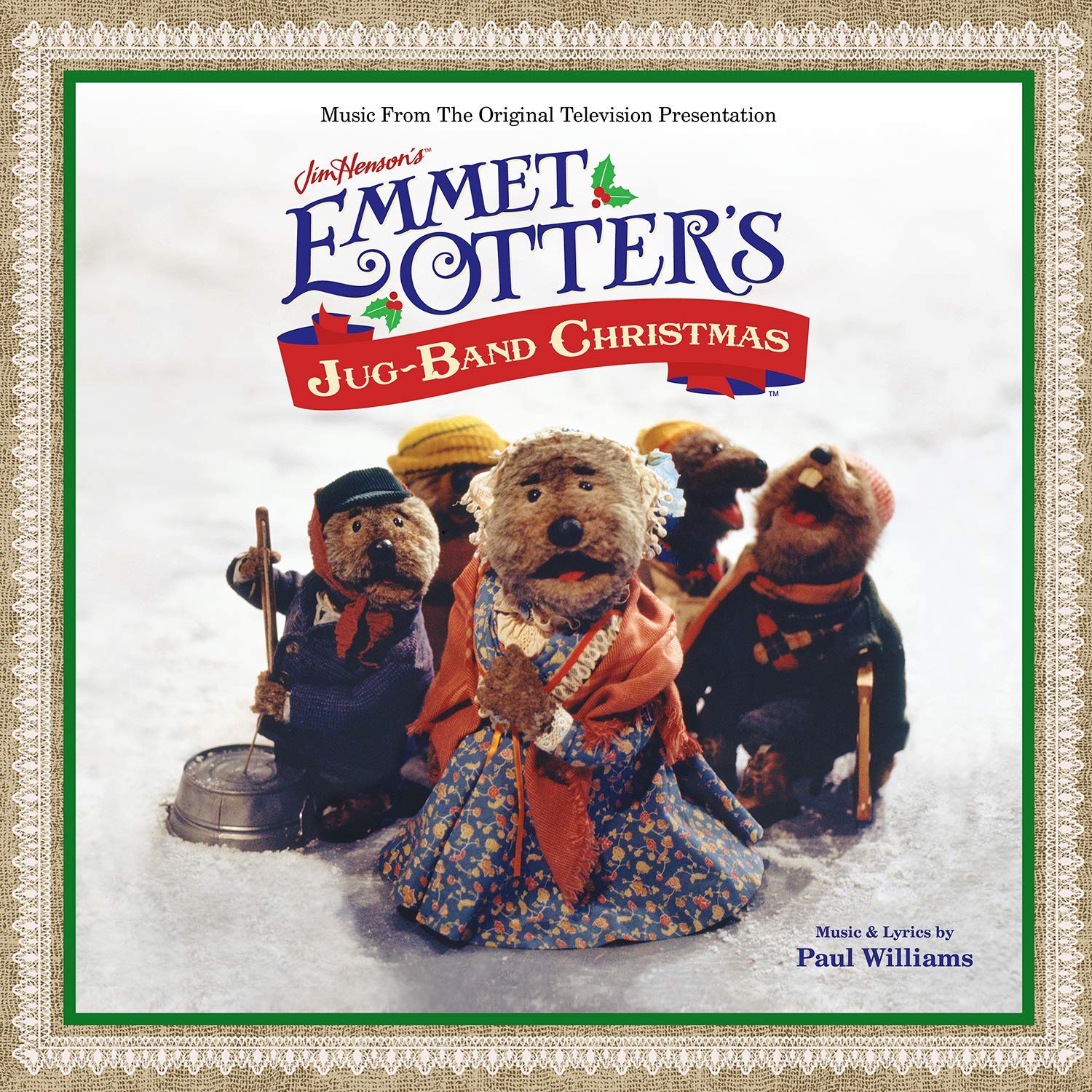Emmet Otter's Jug-Band Christmas (1977)
By Eric Grigs and Michael Jones | December 25, 2021
Emmet Otter’s Jug-Band Christmas is a 70s TV special whose source material is a children’s book written by Russell Hoban and illustrated by his wife Lillian. Directed by Jim Henson and starring a cast of new muppet characters, it first aired on Canadian television in 1977 and then a year later on HBO.
In an episode of the Pop Trash Podcast’s first season, “We Wish You a Campy Christmas,” your elvish hosts Eric Grigs and Mike Jones make the case for this TV special as a balm for your holiday anxieties, while exploring some of the technical genius behind the puppetry which helped to usher in the decades of Muppet cinema that would follow.
Below are a few edited highlights from the conversation including some extras from the cutting room floor. Hear the full episode in the embedded Podbean player below, or listen wherever you get your podcasts.
Mike: Grab your washtub bass, we’re heading to Frogtown Hollow in the 1970s to visit an impoverished otter family who find hope amidst hardship in the charming Jim Henson Christmas special Emmet Otter’s Jug-Band Christmas!
Eric: I remember it fondly watching this as a child on HBO—one of the few things I remember vividly from a young age. But then again, anything “muppety” I was completely obsessed with. Do you have a recollection of it?
Mike: If you mean younger like in my twenties, then yes! I discovered it on cable later in life because growing up, my family—like a lot of people in the 80s—didn’t have HBO. So there wasn’t a wide audience for this to become a part of the zeitgeist in the same way that Rudolph the Red-Nosed Reindeer and Frosty the Snowman did, which benefited from airing on network TV.
Eric: It’s also had a checkered trajectory because of the rights. It is a Henson production, and Kermit the Frog appears in several parts of the original production and as the narrator. Although once the Muppets became owned by Disney, that provided another hurdle and versions with Kermit edited out were produced for home video.
Mike: And if you think that those things are going against Emmet Otter being a yearly tradition, just wait until you watch the special and find out about the economic systems of our world, crushing depression, a death in the family, an overwhelming sense of fear that you are going to be bullied…I could go on, but there are a million anxieties that are crushing down on Emmet and his Ma.
Eric: The unique thing about this special, and most of Jim Henson’s work, is that it was sweet but not saccharine. All of the good and bad of life is found here. He knew how to tell a story showing how the world is bigger than us—how it doesn’t revolve around you. But at the same time, your individual story is important, and it matters.
Mike: Yes, life has not been kind to Emmet and his Ma. I take from it the moral: life will knock you down, but your friends, family, and an undying commitment to faith, hope, and love will get you through the hardest moments. And as you encounter a lifetime of hardships, I think you look at this special differently as an adult than watching as a kid.
Eric: Life will be filled with absent otter fathers, bullies from River Bottom, knowing what it’s like to strive for something and ultimately not get it, not having enough money at Christmas, and so on. But Jim Henson’s lesson seems to help us understand at the end of the day, each other is all we’ve got—and it’s enough. But it doesn’t do it in a preachy way.
Mike: There is a scene where Emmet and Ma Otter decide to celebrate the river freezing over and use a slide that Pa Otter built. And it underscored how things can be enjoyed simply because they are inherently good enough to be enjoyed. Not everything has to be an Instagram moment or spectacular once-in-a-lifetime thing. Finding joy in simple things.
Ma and Emmett Otter puppets used in the production of the special, on display at the Center for Puppetry Arts in Atlanta.
Eric: And it’s noticeable that the special is truly heartwarming, without relying heavily on irony, which almost everything now does, and we’ve all just gotten used to it.
Mike: It makes me wonder if people viewing it now, after living through a time with deep divides in our politics and media, can appreciate a time where you could have a story that is universally appealing about gentleness, love, family, togetherness, and community. I’m curious if it resonates with new audiences, because some of the lessons feel harder now due to how cynical we’ve become as a society.
Eric: To switch gears and get real nerdy for a bit… there’s a variety of puppetry going on here from traditional hand puppets that we’re all familiar with, string marionettes in some shots, chromakey with the performer in front of a black velvet background, and some of the first instances of using radio controlled devices called Waldos, such as when the characters row the boat on the water while singing down the river. All done on these elaborate and detailed raised sets. Looking back, Emmet Otter’s Jug-Band Christmas is a technical achievement.
Mike: My understanding is Jim Henson did this special in some ways as a test for The Muppet Movie a few years later—to put puppets in a real-world environment, larger than the sets from The Muppet Show.
Eric: And it’s a testament to the skill and relationships between the individuals in this amazing troupe of puppeteers: Jim Henson, Frank Oz, Dave Goelz, Jerry Nelson, Richard Hunt. Contrast that to today. Without all of those performers, you can hire all the sound-a-likes you want, but the Disney Muppets still tend feel like they are missing something. And I think it’s the heart of these particular people feeding off of each other’s creativity and energy, as seen in Emmet—that’s what’s magic. Otherwise, it’s just a bunch of puppets acting out a script, which gives you the impression of heart.
Mike: And we have to talk about the contribution of the music, which is pretty brilliant. The special features several new songs by Paul Williams.
Eric: In the 70s, he was everywhere—appearing on late night talk shows, partying at studio 54, popping up for movie cameos in box office smashes like Smokey and the Bandit, and boy did he crank out some hits! If you don’t remember Paul Williams by name, you likely know his sound when you hear it. The Carpenter’s “We’ve Only Just Begun” and “Rainy Days and Mondays,” Helen Reddy’s “You and Me Against the World,” and Three Dog Night’s “An Old Fashioned Love Song” are a few well-known ones. He also won a Grammy and an Oscar for writing the lyrics to Barbra Streisand’s “Evergreen.” As a singer songwriter, his fingerprints are all over 70s pop music.
Mike: While I was watching the special, I was thinking it has a 70s feel that is really from a specific time and place. It does live in that vibe, and to know it has a connection to those beloved acts and songs, that makes it so classic.
Eric: And based on the successful collaboration on Emmet, Henson hired Williams to write the music for The Muppet Movie, which gave us one of the most beloved tunes in the Great American Songbook, “The Rainbow Connection.” Much later, Paul wrote the songs for Muppet Christmas Carol, the first Muppet movie made after Jim had died—which feels like a lovely bookend to Emmett and moving tribute to Jim’s vision and worldview.
Mike: And at Jim’s funeral in 1990, they played the song “When the River Meets the Sea” from Emmet Otter’s Jug-Band Christmas. I find it a beautiful way to describe the cosmic journey we are all on. We all have the same destination whether we like it or not, and the imagery of the river meeting the sea as a metaphor for life is so meaningful.
Eric: It’s an “Amazing-Grace”-type song, for sure. Deep stuff for something that we typically think of as “kid’s fare” at the holidays!
Hear more of the discussion in Episode 3 of the Pop Trash Podcast.




